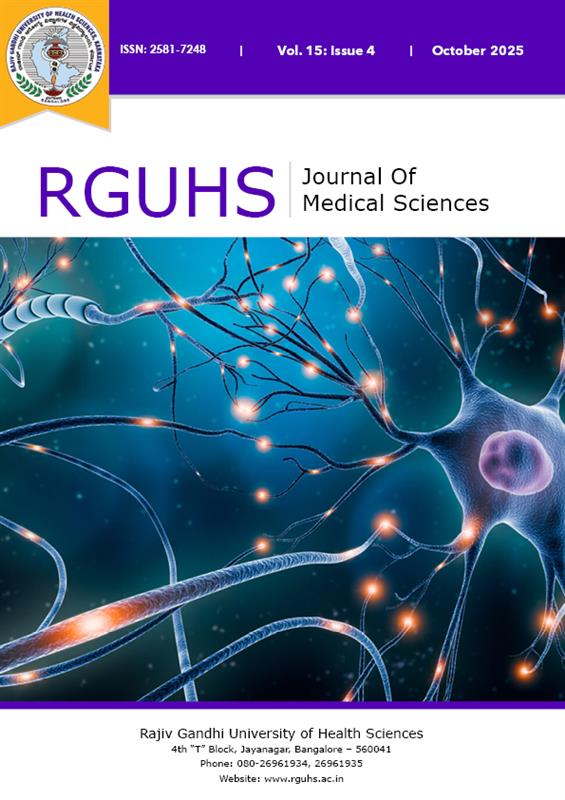
RGUHS Nat. J. Pub. Heal. Sci Vol: 15 Issue: 4 eISSN: pISSN
Dear Authors,
We invite you to watch this comprehensive video guide on the process of submitting your article online. This video will provide you with step-by-step instructions to ensure a smooth and successful submission.
Thank you for your attention and cooperation.
Ramesh Masthi N R1 , Gangaboraiah2 , Vishaka Sudarshan3 , Yashaswini L S3
1 Associate Professor, 2Professor, 3Junior Doctors
Department of Community Medicine, Kempegowda Institute of Medical Sciences, Bangalore

Abstract
Objective of the study: 1.To assess the awareness towards organ donation, 2.To compare the attitude towards organ donation, and 3.To list the reasons for favorable and unfavorable attitude for organ donation
Materials & Methods : The descriptive study was conducted over a period of 7 months from March 08 to August 08 in urban Bangalore. 810 individuals were included by purposive sampling technique which included medical students, non medical (engineering) students, medical teaching staff, non medical teaching staff (58 school teachers, 32 engineering teaching staff).They were asked about various aspects of organ donation and brain death using a pre-tested questionnaire.
Results: 96% of the study subjects were aware about organ donation. Majority (56%) were aware about eye donation. Television (68%) was the main source of information. 85% of the study subjects had heard the term brain death but only few were aware about its importance in organ donation. 5% of study subjects have pledged their organs to be donated after death and 35% in remaining we are willing to pledge their organs. 32% of subjects who did not want to donate their organs after death stated spiritual reasons as the main reason.
Conclusion:Majority are aware about organ donation. However, very few are willing to donate their organs after death
Keywords
Downloads
-
1FullTextPDF
Article
none
Supporting File
References
none